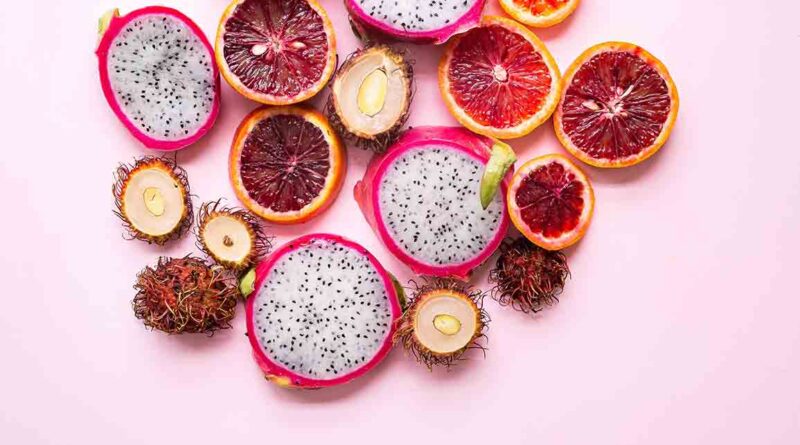10 nutrition mistakes vegans make
When I travel, which is quite often, I choose to go vegan. Diary is one of the hardest foods to digest, especially for a vegetarian such as me. I remember how terribly sick I had taken on my trip to Bhutan after having cheese there. I had a serious case of food poisoning and thereafter was severely dehydrated. I spent most of my time in the beautiful country in bed, agonising in pain.
Since, I turn vegan as soon as I board a flight or a train. It’s worked very well for me. Also, I have realised that when you say you are a vegan, chefs have to wear their creative hats and prepare something for you that is out of the ordinary. If you say vegetarian, they will stuff you with risotto, as it happened with me in Finland or white pasta. And I am fond of none.
While switching to a vegan diet can offer a host of health benefits, it also requires careful planning to ensure you’re meeting all your nutritional needs. Here are ten common mistakes vegans might make and tips on how to avoid them:
1. Not Eating Enough Protein
Protein is essential for muscle repair, immune function, and overall health. Vegans often rely too heavily on carbohydrates or fats and might overlook protein-rich foods.
How to Fix It: Incorporate plant-based proteins like lentils, chickpeas, tofu, tempeh, quinoa, and edamame into your diet. Using protein-rich grains like amaranth and buckwheat can also help.
2. Overlooking Vitamin B12
Vitamin B12 is crucial for brain function and energy production, but it’s primarily found in animal products. A deficiency can lead to fatigue, nerve damage, and anemia.
How to Fix It: Take a B12 supplement or consume fortified foods like plant-based milk, cereals, or nutritional yeast.
3. Not Getting Enough Omega-3 Fatty Acids
Omega-3s, particularly DHA and EPA, are important for heart, brain, and eye health. Plant-based diets often lack these essential fatty acids, especially since they’re mostly found in fish.
How to Fix It: Add flaxseeds, chia seeds, walnuts, and hemp seeds to your meals, or consider an algae-based omega-3 supplement.
4. Iron Deficiency
Non-heme iron (found in plant foods) is harder for the body to absorb than heme iron (found in animal products). Vegans may experience low iron levels, leading to fatigue and anemia.
How to Fix It: Include iron-rich foods like lentils, beans, spinach, quinoa, and tofu in your diet. Pair these with vitamin C-rich foods (citrus fruits, bell peppers) to enhance absorption.
5. Ignoring Calcium Needs
Calcium is vital for bone health, and while it’s abundant in dairy products, vegans need to find alternative sources.
How to Fix It: Opt for calcium-fortified plant milks, tofu, almonds, sesame seeds, and dark leafy greens like kale and broccoli.
6. Not Getting Enough Vitamin D
Vitamin D aids in calcium absorption and supports immune health. It’s primarily obtained from sunlight, but diet plays an important role, especially in winter or for those with limited sun exposure.
How to Fix It: Take a vegan vitamin D supplement or consume fortified foods like plant milks and cereals. Mushrooms exposed to sunlight are another natural source of vitamin D.
7. Relying Too Much on Processed Vegan Foods
Vegan diets can be healthy, but relying on processed foods like vegan burgers, nuggets, and cheese substitutes may lead to a diet high in sodium, unhealthy fats, and additives.
How to Fix It: Focus on whole, minimally processed foods like fruits, vegetables, grains, and legumes for the bulk of your diet. Treat processed vegan options as occasional indulgences rather than staples.
8. Inadequate Iodine Intake
Iodine is important for thyroid function and metabolism, and many vegans don’t get enough since it’s often found in dairy, eggs, and fish.
How to Fix It: Use iodized salt in moderation or include seaweed (nori, kelp) in your diet to maintain healthy iodine levels. If you’re concerned, you might consider a supplement.
9. Neglecting Zinc
Zinc is essential for immune function and metabolism, but vegans may struggle to get enough since plant sources of zinc are less bioavailable.
How to Fix It: Include zinc-rich foods such as legumes, seeds (pumpkin, sesame), nuts, and whole grains. Soaking and sprouting grains and legumes can also enhance zinc absorption.
10. Not Eating Enough Calories
Since plant-based foods tend to be lower in calories, new vegans might inadvertently reduce their caloric intake, leading to fatigue, irritability, and even weight loss.
How to Fix It: Ensure you’re consuming enough calorie-dense foods like nuts, seeds, avocados, and whole grains. Pay attention to portion sizes and increase your intake if needed.




